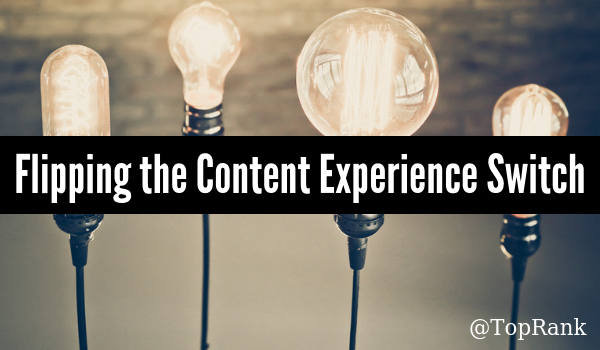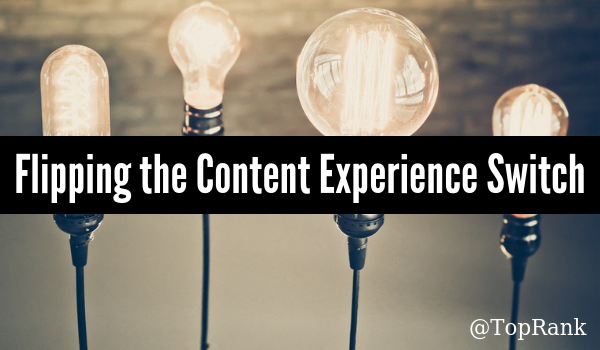
I’d love to tell you everything. But in the spirit of brevity and relevance, I’ll cut to the moment it all clicked.
While enjoying a lovely dinner with an old family friend last week, he relayed his version of a classic Maya Angelou quote to me:
“You know, you meet so many people throughout your life. And you never really remember what they said or what they did, but you always remember the way they made you feel.”
For decades, content marketers have been tasked with meeting buyers along their journey, striving to create best-answer content that satisfies curiosity, encourages brand engagements, and paints their product or service as the solution buyers are looking for.
However, as technology and innovation soared, internet accessibility expanded, competition evolved, and buyer and consumer preferences changed, many marketers have felt pressure to ramp up content production and push it out fast to stay visible, engaging, and relevant; they’re saying and doing more than ever.
But the question every marketer needs to answer is: Is my brand delivering experiences that leave a lasting impression?
The Current Situation
Savvy and ambitious content marketers are increasingly insight-driven, leveraging owned and third-party data to inform their content approach. For example:
- For years research has consistently shown that buyers conduct much of their research online prior to reaching out to a vendor. So, you aim to create best-answer content based on search demand and topical relevance.
- More research and experience shows that buyers don’t trust brands, but they do trust their peers and industry experts. So, you partner with relevant industry influencers to provide wide-ranging perspectives and grow thought leadership.
- Social media platforms are learning and engagement destinations; it’s where buyers spend a huge chunk of their time personally and professionally. So, you leverage social media as part of your integrated strategy to amplify content, engage in discussions, spotlight influencers, and more.
But the question still remains: Are your efforts making a lasting impact? Are you making customers and prospective buyers feel something?
It’s the age of experience, folks. Fresh research from Gartner reveals that 80% of marketing leaders surveyed said they expect to compete mainly on customer experience this year. A study by Forrester, which was commissioned by *Adobe, shows that experience-led businesses have higher brand awareness, employee satisfcation, customer satisfaction, customer retention, and the list goes on. Finally, Adobe’s Digital Trends Report reveals that half of brands will increase CX-related technology spending this year.
Understanding discovery and consumption habits and preferences is vital. They are key parts of building your content marketing strategy, and part of our own process for developing best-answer content. But it’s time for a shift; it’s time to flip the experience switch.
Flipping Your Switch
The examples in the previous section are still smart and relevant marketing plays. But the output may look a little different once you apply the experience lens.
The good news? Shifting your strategy to focus more on experiences largely comes down to mindset. The bad news? Shifting your strategy to focus more on experiences largely comes down to mindset.
When you flip your experience switch on, the data you seek, the conclusions you draw, and the strategic choices you make—from experimenting with new mediums such as podcasts and interactive content to innovative storytelling—will naturally evolve.
Creating compelling experiences with interactive content is one way to stand out, differentiate, and optimize for effectiveness. @leeodden Share on XBut it can be hard to break free of the status quo—or convince other stakeholders it’s the right move.
A great first step is simply test something new. That doesn’t necessarily mean you should chase after the newest, shiniest tactic. We believe in being bold and breaking free of boring B2B traditions, but you need to be smart with your time, budget, and resources.
When it comes to getting stakeholder buy-in, you’ll undoubtedly have to provide data-backed rationale, examples, level-set on potential results, and outline the needed budget. But be confident in your recommendation. You’ll certainly need to be open to feedback, but stay focused on your end goal to prevent your plan from being completely watered down. As Tim Washer, a seasoned B2B marketer, keynote speaker, and comedian once told me:
“These days, there’s so little content out there that truly connects with people. So often we start off with a good idea, it goes through a committee where everyone wants to have a say in something, and the idea begins to soften. Then you end up with the lowest common denominator of something safe.”
So often we start off with a good idea, it goes through a committee where everyone wants to have a say in something, and the idea begins to soften. Then you end up with the lowest common denominator of something safe. @timwasher Share on XReady. Set. Flip.
As Shep Hyken—a seasoned customer service and experience expert—shared with us not long ago: “Customers don’t compare you to your competitors anymore—they compare you to other positive experiences they’ve had.”
Customers don’t compare you to your competitors anymore—they compare you to other positive experiences they’ve had. @Hyken Share on XContent marketers can play an integral role in crafting and advancing positive audience experiences with their brands. But it will require a shift in mindset for you, your team, and other key stakeholders within your organization.
So, start small by breaking out of your comfort zone and testing something new. If you don’t have the right tools, expertise, or internal resources, tap your friendly neighborhood content marketing agency.
Resonance is a key factor in creating content experiences that form audience connections. Get inspiration and insight from 10 seasoned marketing pros.



